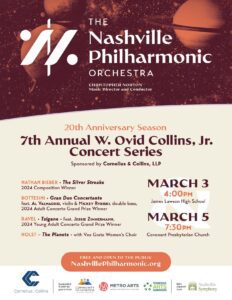
Jason K. Murrie
Like it or not, courts will not step in to second-guess public emergency measures that local governments believe to be necessary to address the emergency.
Or, viewed slightly differently, there is no constitutionally-protected fundamental right to serve booze to unrestricted numbers of patrons in the middle of a health pandemic.
Both of these observations can be learned from the recent decision of the Federal District Court for the Middle District of Tennessee in ARJN #3 d/b/a Jonathan’s Grille, et al. v. John Cooper, et al.[1] That case, like many others pending throughout the nation, involved the efforts of Nashville restaurant Jonathan’s Grille to fight back against the various restrictions placed on restaurants and bars by Metro Nashville governmental entities. Specifically, Jonathan’s Grille claimed that Metro Nashville’s curfew and occupancy restrictions violated the restaurants’ equal protection and substantive due process rights under the United States Constitution.[2] Jonathan’s Grille sought to have the federal court enjoin Metro Nashville from enforcing its curfew and occupancy restrictions. In response, Metro Nashville filed a motion asking the court to dismiss Jonathan’s Grille’s claims on multiple grounds.
In addressing Metro Nashville’s motion to dismiss, Federal District Judge Eli Richardson conducted a thorough analysis and application of long-established constitutional law. In fact, Metro Nashville’s motion relied on the decision of the United States Supreme Court over 100 years ago in Jacobson v. Massachusetts,[3] which involved a challenge to emergency action taken by Massachusetts to combat smallpox. As Judge Richardson explained, in Jacobson “[t]he Supreme Court upheld the law, explaining that when a state enacts emergency measures to protect public health, those measures may permissibly restrict individual liberties so long as they have some ‘real or substantial relation’ to the public health crisis and are not ‘beyond all question, a plan, palpable invasion of rights secured by’ the Constitution.”[4] Yet, a more recent U.S. Supreme Court decision also required consideration of the constitutional arguments advanced by Jonathan’s Grille. As Judge Richardson discussed, Justice Neil Gorsuch’s concurring opinion in last year’s Roman Catholic Diocese of Brooklyn v. Cuomo[5] reminded that questions involving constitutional rights (or alleged infringements thereof) still must be weighed using the “traditional legal test associated with the right at issue.”[6] That is, if the right at issue is a “fundamental right”, the court is to apply strict scrutiny to determine whether the restriction is “’narrowly tailored to
[1] 2021 WL 409927, Feb. 5, 2021.
[2] Jonathan’s Grille also asserted in its Complaint that the Metro Nashville restrictions violated its rights as guaranteed by the Tennessee Constitution. However, because Jonathan’s Grille did not address this part of its claim in response to Metro Nashville’s motion to dismiss, the court ruled this part of its claim to be abandoned.
[3] Jacobson v. Massachusetts, 197 U.S. 11 (1905).
[4] 2021 WL 409927 at *5, citing Jacobson, 197 U.S. at 31, 38.
[5] 141 S. Ct. 63 (2020).
[6] Id. at * 6, quoting Roman Catholic Diocese, 141 S. Ct. at 70 (Gorsuch, J. concurring).
serve a compelling state interest.’”[1] Conversely, “[i]f a fundamental right is not implicated, courts will utilize rational-basis review.”[2]
Citing to well-established precedent, Judge Richardson confirmed that Jonathan’s Grille had “not allege[d] the deprivation of a fundamental right, because Plaintiffs do not allege that they are prevented from engaging in their profession. In fact, the allegations make clear that the restaurants are still in operation.”[3] Accordingly, the court was to apply a rational basis test to determine whether the restrictions were constitutionally valid. In applying this test, the court described the deferential standard afforded to Metro Nashville: “As the Supreme Court often has reiterated, the party challenging [a government action] subject to rational basis review must ‘negate every conceivable basis which might support it.’”[4] Given this extremely lenient standard in the context of the COVID-19 pandemic, and the multiple justifications provided by Metro Nashville in instituting the restrictions in question, Judge Richardson held that Jonathan’s Grille could not overcome the “’presumption of rationality’” inherent in Metro Nashville’s actions.[5] Jonathan’s Grille’s due process claim was therefore dismissed.
Likewise, Judge Richardson held that Jonathan’s Grille failed to establish an equal protection claim under the Fourteenth Amendment. Because the restaurant was neither a suspect class, nor did the question involve a fundamental right, the court again considered Metro Nashville’s restrictions using a rational basis test. And, once again, the court held that Jonathan’s Grille was unable to overcome the rational justification supplied by Metro Nashville for instituting the restrictions placed on bars and restaurants. Addressing the assertion made by Jonathan’s Grille that Metro Nashville had treated other businesses (and protests) differently than restaurants, Judge Richardson ruled that “the Court can conceive a rational justification for treating restaurants, where patrons are seated unmasked in close proximity, differently from protests, which occur outside and allow for mask wearing, and gyms, where patrons are better able to practice social distancing and do not serve alcohol.”[6] Consequently, Jonathan’s Grille’s equal protection claims were dismissed.
While Judge Richardson’s decision reflected his understandable sympathies towards Jonathan’s Grille and other businesses of all kinds which have been impacted by the COVID-19 pandemic, at its heart the issues before the Court were relatively straightforward questions of constitutional law. In cold, clinical terms, Jonathan’s Grille is merely a business operation. It is not entitled to any heightened protection under the Constitution, as it claimed neither a fundamental right nor is it a protected class. Conversely, governmental authorities such as Metro Nashville have long been able to restrict the rights of businesses such as Jonathan’s Grille, without court interference, so long as those restrictions may be rationally justified. While the end result in this instance is unfortunate, and perhaps unfair, it is also unsurprising and entirely consistent with long-established Constitutional law.
[1] Id. at *7, quoting Doe v. Michigan Dep’t of State Police, 490 F.3d 491, 500 (6th Cir. 2007) (quoting Reno v. Flores, 507 U.S. 292, 302 (1993)).
[2] Id., citing Doe v. Michigan Dep’t of State Police, 490 F.3d 491, 500 (6th Cir. 2007).
[3] Id. at *8.
[4] Id., quoting Am. Exp. Travel Related Servs. Co. v. Kentucky, 641 F.3d 685, 690 (6th Cir. 2011) (citing Lehnhausen v. Lake Shore Auto Parts Co., 410 U.S. 356, 364 (1973)).
[5] Id. at *10, quoting In re City of Detroit, 841 F.3d 684, 701 (6th Cir. 2016).
[6] Id. at *11.





